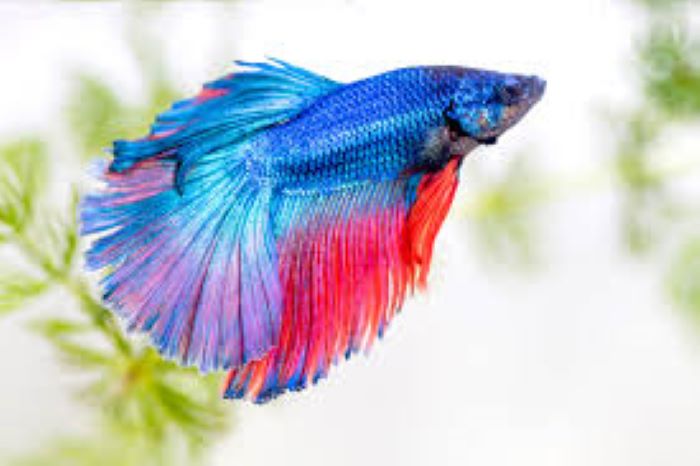Most hobbyists, whether beginners or experts, freshwater or seawater fish keepers, priorities aquarium fish that are resilient and simple to care for. So, which fish are the easiest to keep in captivity?
The easiest fish to care for is peaceful in temperament, are not picky eaters, adapt to various water conditions, and work to help keep their aquarium clean. As a fish owner, some of the most important decisions you will have to make are about the types, numbers, sexes, and sizes of the fish you choose for your aquarium or pond.
The easiest fish to care for in captivity are docile and get along well with others. Species that can live in less-than-ideal water conditions and are not picky eaters are also considered hardy and easy to maintain. Fish that survive just fine if you forget to feed them for a day or two are also on this list.
Cleaner fish are also good for beginner hobbyists since they help clean the tank. It is usually recommended that amateur fish keepers’ start small’ with just a few fish in not too big of a tank. Freshwater species are also encouraged since saltwater fish tend to be harder to maintain. You want survivors – fish that can easily adapt to various aquatic environments.
Table of Contents
What is the Easiest Freshwater Fish to Take Care of?
Choosing fish is one of the most exciting and hardest things a new aquarist has to do. Many aquarists go to the fish store and buy the fish they think looks good and come home with an Oscar, an angelfish, two guppies, and a goldfish. This is what you should not do! It would help if you started by learning more about the fish you are considering getting.
It is better to go to the fish store without buying something and then read about the species you are considering getting in a book or on the internet. If the person described above had done that, he would have noticed that those fish species are not suitable to be kept together. Many want to get their first fish tank and start their freshwater aquarium.
However, one thing that holds most of them back is that they think it is not easy to care for a fish. But some fish are way easy to care
The eight best freshwater fish considered to be low maintenance and easy to care for include:
- Bettas
- Goldfish
- Guppies
- Mollies
- Platies
- Tetras
- Swordtails
- Zebrafish
Bettas
Bettas are hardy and can adapt to almost any size tank, even as small as 2 gallons (though a 5-gallon aquarium is better). They are easy to feed and maintain, provided you keep them alone or with other fish of similar size and non-aggressive temperament.

Goldfish
Goldfish are very easy to keep. They eat almost anything offered to them and can tolerate fluctuations in water temperature and pH better than most freshwater fish. They will also nibble on algae which helps keep their tank clean and free of pollutants. Goldfish do not require a heater and can survive in room-temperature water.
It is okay to put them in a heated tropical tank; it is just not necessary to have heat it heated. As easy as goldfish are to care for, if you have not owned them, you should know that they are extremely messy fish. They have big poops and disrupt decorations in an overly crowded tank.
 Free goldfish image, public domain animal CC0 photo.
Free goldfish image, public domain animal CC0 photo.
Guppies are tiny fish and easy to maintain in captivity. All they need is a few others of their kind to school with, a simple diet of fish flakes and a clean tank. Cheap to purchase, this species will help keep their aquatic environment clean by nibbling on excess algae. Guppies will breed easily; if you have male and female genders in the tank, you can expect to have baby guppies quite often.
Mollies
Though larger, mollies can survive like guppies in fresh and brackish water conditions. They will eat almost anything they offer and cost very little to purchase. This species is great for beginners due to its hardy nature and peaceful temperament. They are peaceful fish that get along great with other fish in a community tank. They are not fussy about their diet, and they are hardy fish too.

Platies
Colourful and peaceful, platies are hardy and easy to care for. The perfect addition to almost any freshwater community tank, this species can survive in a smaller 10-gallon tank and tolerate a wide range of water conditions – which is great for beginner hobbyists.

Tetras
Tetras, especially neons, are small and peaceful. They spend most of their time swimming about the tank in a school of 6 or more. Hardy and inexpensive, tetras can survive on little more than fish flakes and in less-than-perfect aquatic conditions.

Swordtails
Swordtails are highly adaptable and not very demanding when it comes to caring. They do well in a wide range of aquatic conditions and eat virtually anything plant- or meat-based. Their hardy nature makes them a popular choice for beginner hobbyists.

Zebrafish
Zebra danios are small schooling fish and easy to keep in a captive aquatic environment. They can survive in cooler water conditions and do not require an expensive filtration system. All they need to thrive are micro pellets or fish flakes for sustenance.

Conclusion
To conclude, the easiest fish to maintain are peaceful and get along well with others. They also eat anything they offer and can adapt to less-than-perfect water conditions. Species that help keep their tank clean require minimal effort and are especially good for beginners. All fish require hard work and dedication, even the easier breeds.
. Set up strict feeding and cleaning schedules and stick to them. Having an aquarium as a hobby is a fun thing to do. Once you know what kind of fish you want to keep, do your research and plan an aquarium that will be good for them. These fish are hardy, easy to care for, and easy to find at your local fish store, so have fun researching them and deciding which one is best for you.
link to Does Aquarium Fish Sleep?/ A Comprehensive Guide! link to Can 2 betta fish live together ? All you need to know about betta fish

Lena Whitmore is the lead writer at FishClans.com, bringing over 10 years of fishkeeping expertise and a master’s degree in Marine Biology to the site. Her extensive knowledge and practical tips have established her as a respected authority in the aquarist community. Lena’s work has appeared in leading publications and she frequently speaks at industry events.
Connect with Lena and FishClans on Facebook, Pinterest, and Instagram.

